In a recent development, the Council of Architecture (CoA) has issued a letter to Rajesh Advani, the Founding Editor of ArchitectureLive!, demanding the retraction of a previously published article on RTI. The CoA has also called for an unconditional apology and the publication of the full RTI (Right to Information) response. The original article in question discussed the CoA’s official response to an RTI request regarding the availability of institution-wise enrolment data for architecture schools across India.
In their RTI response, the CoA had stated that compiling this data would “require considerable time & energy and would disproportionately divert the resources of the Council bringing all its day-to-day working to standstill.” The article argued that this statement implied the data was not significant enough to warrant the effort, a claim that the CoA has now termed as “defamatory and sensational” and appearing to be “created for the sake of publicity and views.” In the letter to ArchitectureLive!, the CoA has demanded the retraction of the article, the publication of the full RTI response, and an unconditional apology from the publication.
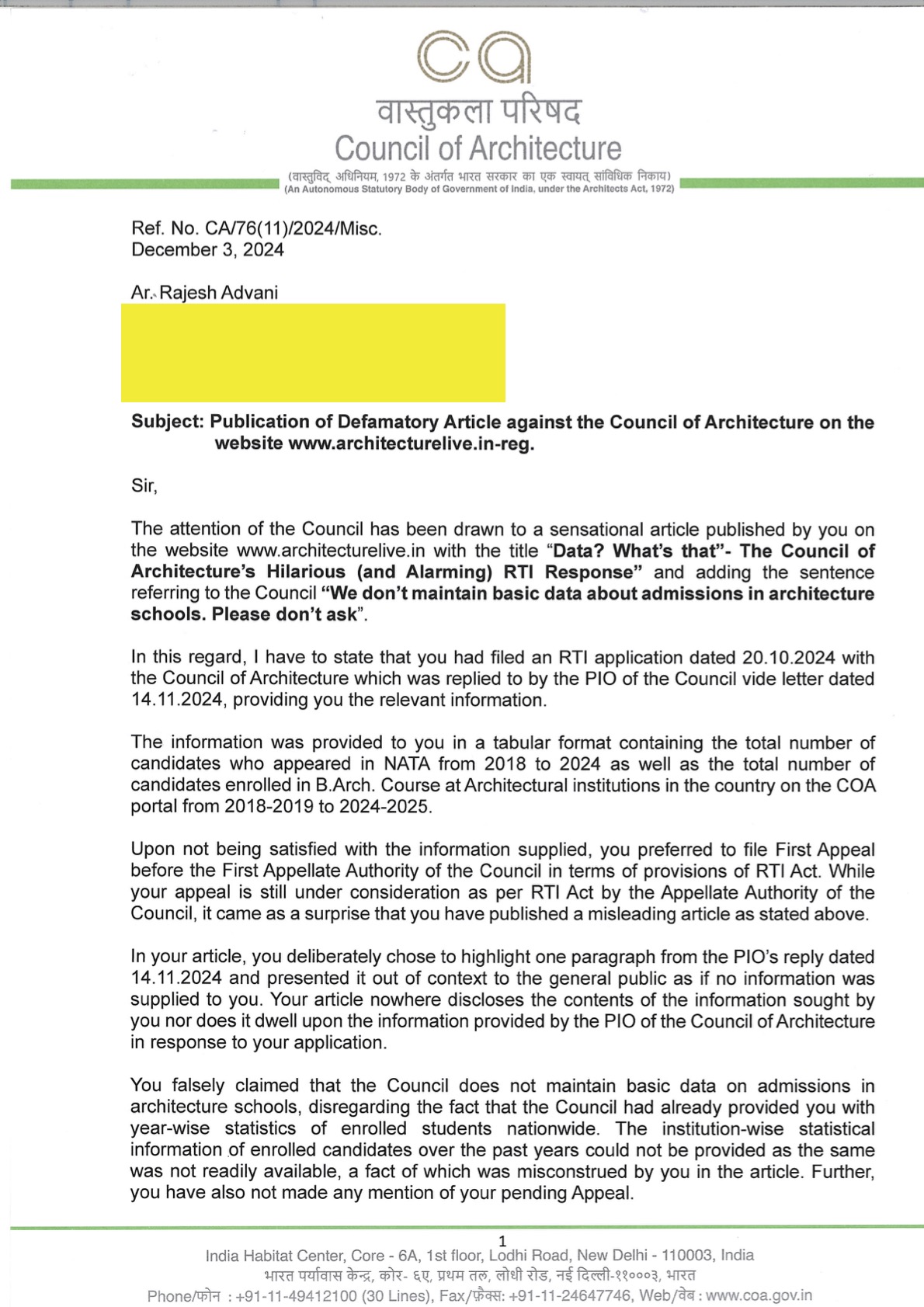
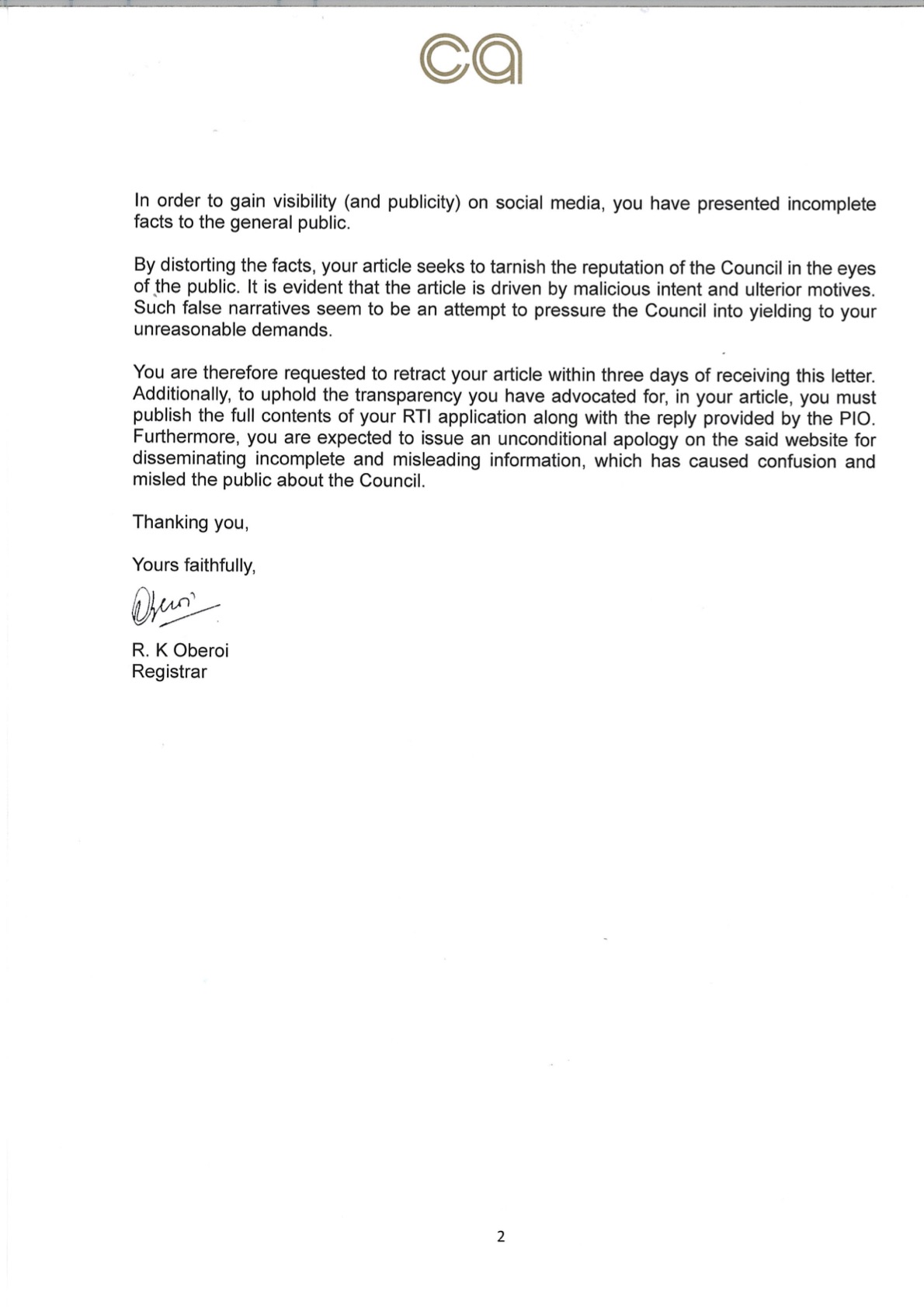
ArchitectureLive!’s Response
ArchitectureLive! has stood firm on the accuracy and importance of the information presented in the original article. Rajesh Advani, the Founding Editor, has appended the full RTI query and the CoA’s original response to the previously published article. However, Advani has emphasized that this does not change the core issues and concerns raised in the initial article. He argues that “the institution-wise enrolment data has immense value for researchers, policymakers, and the broader architectural community in India. This information could provide crucial insights into regional trends, disparities, and the overall state of architectural education in the country.”
Advani further highlighted that several heads of institutions have confirmed institutes provide such data to the CoA annually, suggesting that compiling the information in the requested format should not be overly difficult.
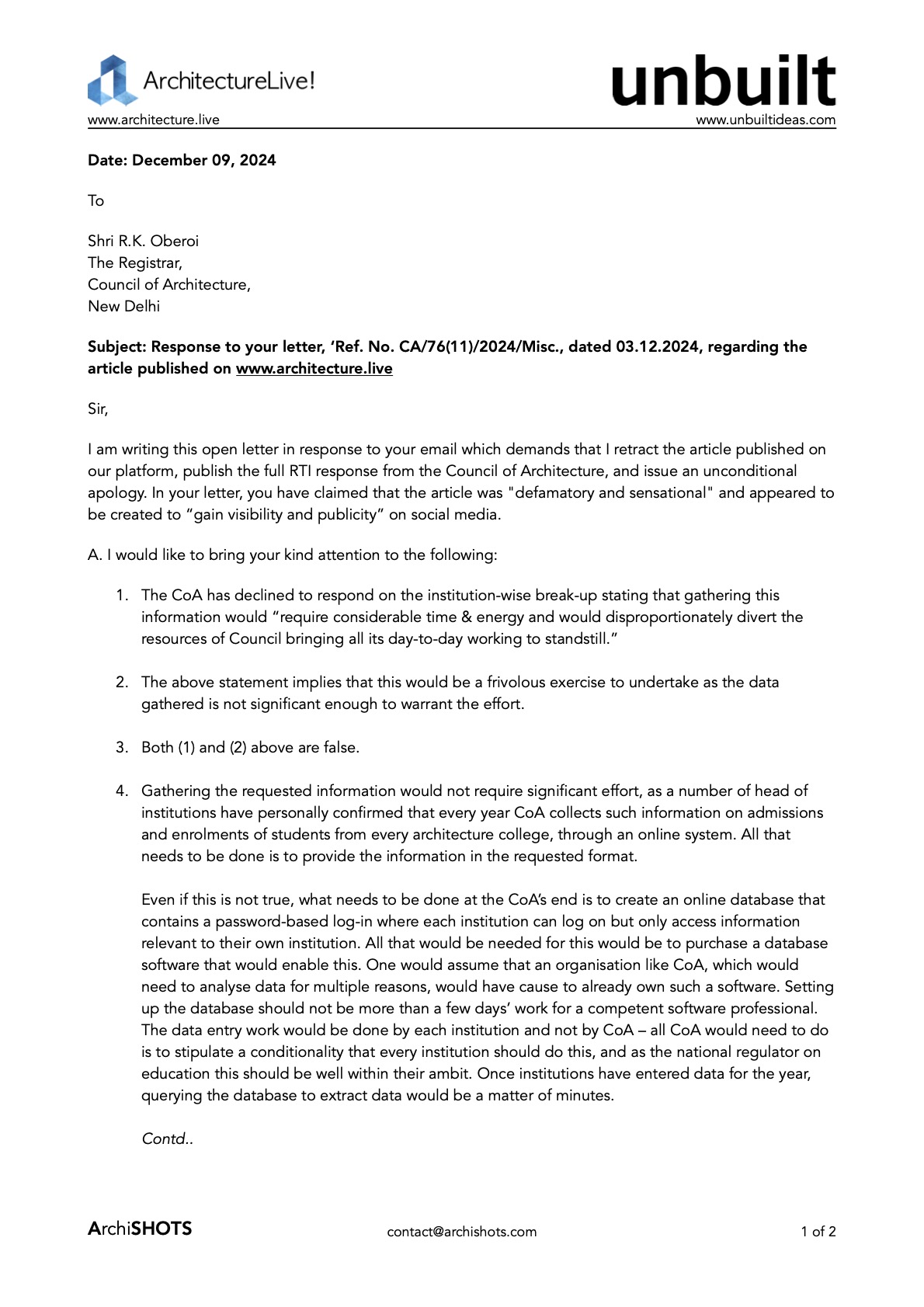
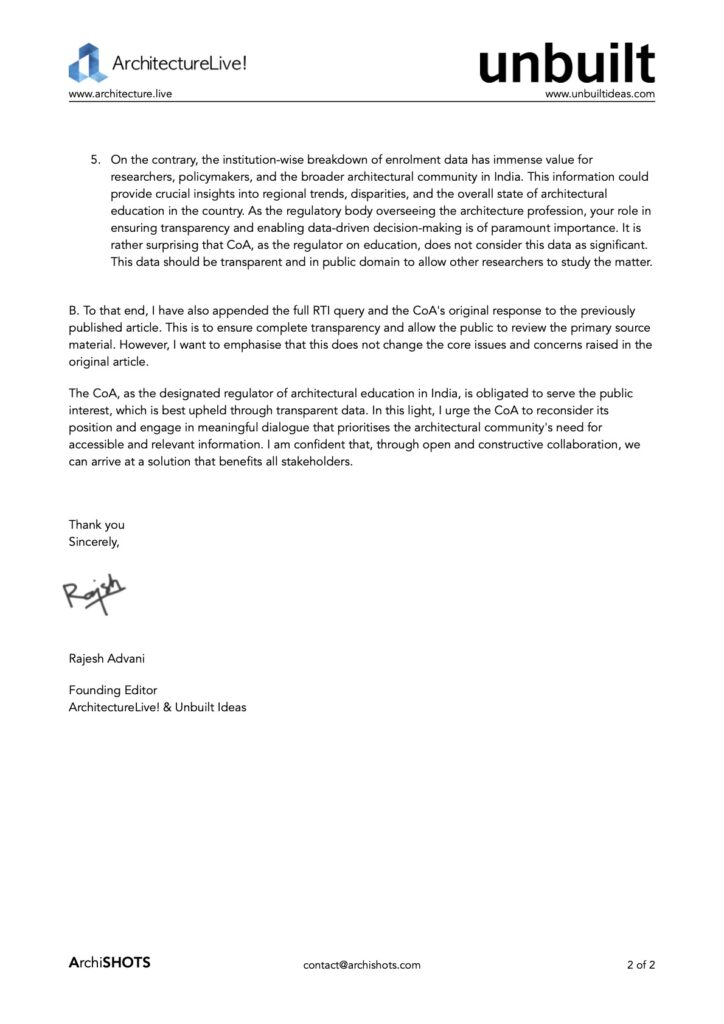
ArchitectureLive!’s response to the CoA also mentions that,
“As the regulatory body overseeing the architecture profession, your role in ensuring transparency and enabling data-driven decision-making is of paramount importance,” Advani wrote in the response. “I am confident that, through open and constructive collaboration, we can find a solution that benefits all stakeholders.”
ArchitectureLive! has reiterated its commitment to responsible journalism and its dedication to serving the public interest. The publication remains hopeful that a constructive resolution can be reached with the CoA. The ongoing exchange highlights the importance of transparency and data accessibility within the architecture sector in India.
As the regulatory body, the CoA’s response will be closely watched by the broader architectural community.


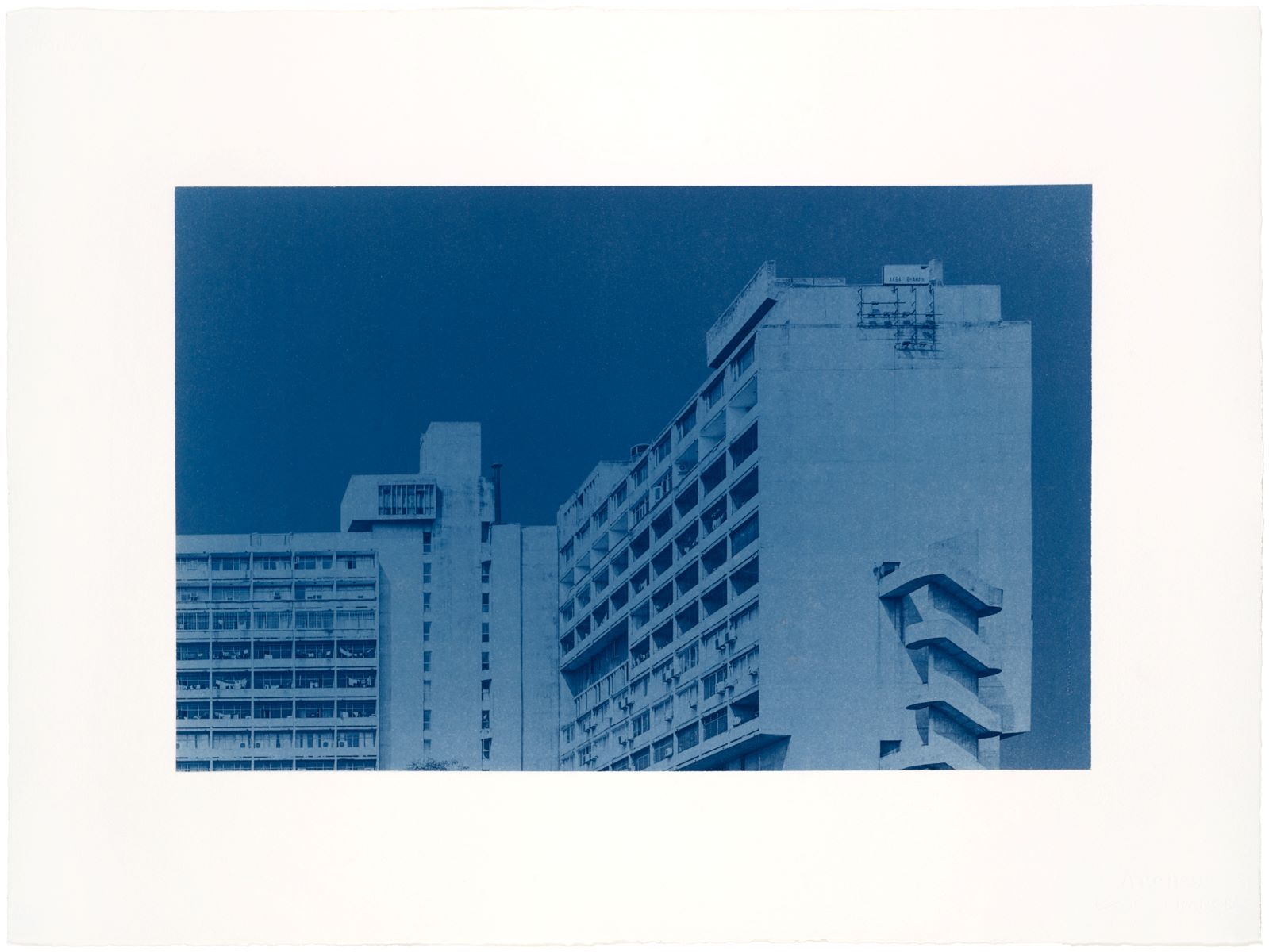



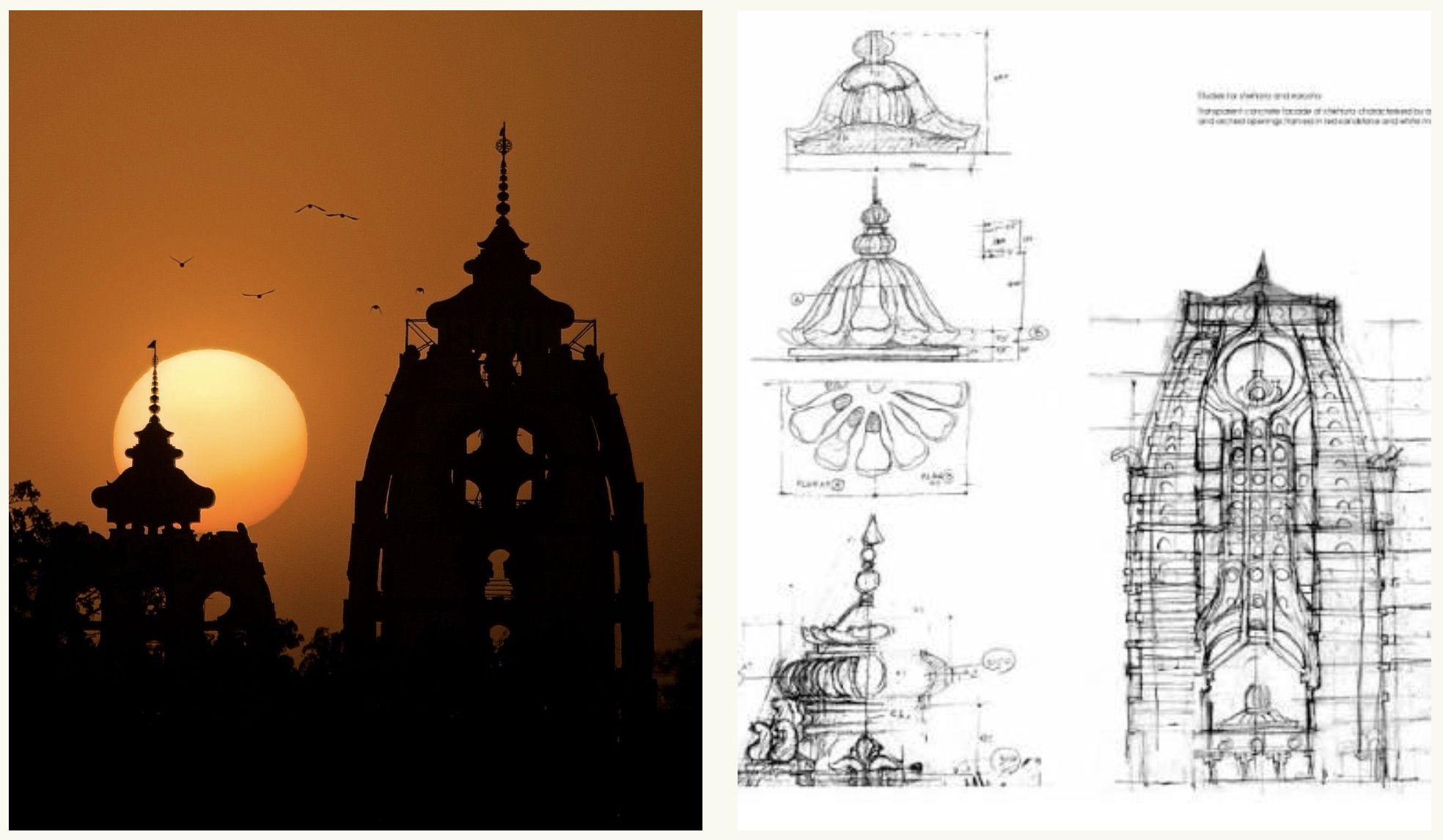



3 Responses
2nd last paragraph of CoA (warning) letter is very interesting. They have accused Rajesh Advani of “malicious intent and ulterior motive”
This is without any logic. These are ridiculous allegations and without any substantial and legal evidence.
They are further talking of “yielding to your demands”
They should clarify the same.
Let the masses know what were the demands of Rajesh Advani.
If they fail to prove these allegations then action is required against the author of the letter sent on CoA letterhead.
Ashok Goel
Architect
Delhi 110007
Having made compulsory for all Institutions to get enrolled all their Students admitted, providing the data/information on admission of Students Institution-wise should not be a problem and not much time consuming. Even if it is asked about a Student admission detail, the CoA is to be capable in providing the same. Moreover, it doesn’t require to tell about the reason or purpose or any justification for seeking the information under the RTI Act. CoA’s action/ reaction on the Article is therefore unwarranted.
What then is the COA doing that its time will be wasted if they cannot share data already with them. The data asked for is important to the architectural colleges and architects too. Is that not what COA was established for.